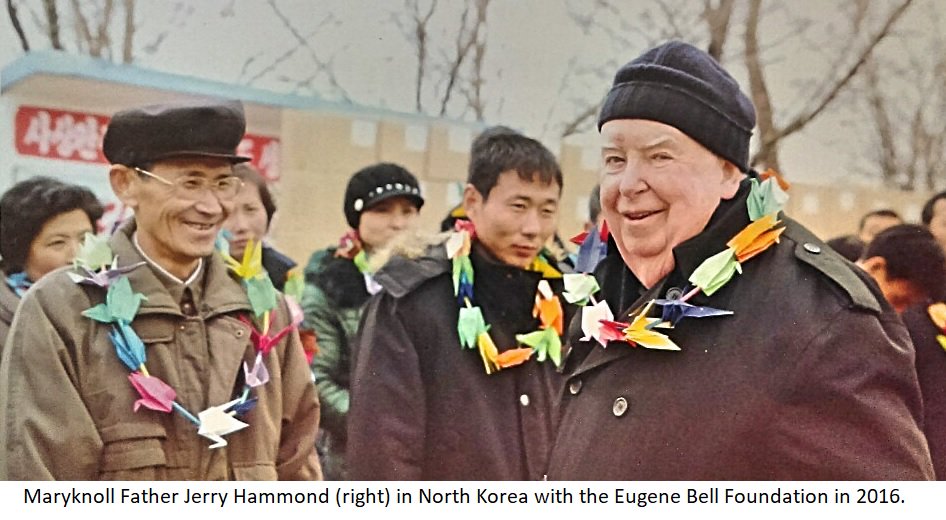North Korea: Maryknoll missioners on peace talks
On June 12, North Korean leader Kim Jong-Un and U.S. President Donald J. Trump met in Singapore with grandeur and fanfare to discuss the possible dismantling of North Korea’s nuclear program.
On June 12, North Korean leader Kim Jong-Un and U.S. President Donald J. Trump met in Singapore with grandeur and fanfare to discuss the possible dismantling of North Korea’s nuclear program. The following article was published in the July-August 2018 issue of NewsNotes.
Maryknoll missioners with experience in North Korea welcome the joint statement by North Korean leader Kim Jong-Un and U.S. President Donald J. Trump in which they commit to pursue peaceful U.S.-North Korean relations and the “complete denuclearization of the Korean peninsula.”
Even without substantive commitments, their joint statement is a tremendous improvement over the mutual brinkmanship and all-too-real risk of war that escalated in 2017. President Trump, Chairman Kim, and South Korean President Moon Jae-in have taken the essential first steps toward negotiating a peace agreement. Reaching an agreement, implementing it, and ensuring that it lasts, however, requires further concerted efforts on all sides to move North Korea out of its isolation and into the international community, to ensure accountability for North Korea’s well-documented human rights violations, and to ensure the United States’ commitment to denuclearize its presence on the peninsula.
Maryknoll Father Gerald Hammond, who has lived and worked in South Korea since 1960 and makes frequent visits to patients at multidrug-resistant tuberculosis centers in North Korea, said in a recent interview with FOX 5 New York that “People [in North and South Korea] had an awful fear of war so the Summit meeting for them is just the beginning, they realize that it is going to be a long, arduous journey but at least hopefully there will be peace on the peninsula.”
“Both [North and South Koreans] have suffered a great deal,” Fr. Hammond said, “and so through their suffering I think they understand how to have some reconciliation between the countries.”
Maryknoll Father Larry Murphy got to know several high-level North Korean officials visiting the United States while serving as president of Seton Hall University in South Orange, New Jersey, and subsequently traveled to North Korea in the 1990s. When asked about the Singapore Summit, Fr. Murphy said, “It is good that they are talking, and the talks now are probably taking place among officials of the State Department and similarly ranked officials of North Korea. Maybe something good will happen without the two leaders knowing.”
Fr. Murphy touched on the motivations of the two men to come together. “It seems President Trump’s main purpose is to promote his own image, to be able to cast himself as having done something no other president has done,” Fr. Murphy said, referring to the fact that Trump is the first sitting U.S. president to meet with a North Korean leader.
As for Chairman Kim’s motivations, Fr. Murphy said “Kim also hopes the talks will lead to an opening up of North Korea’s economy in order to improve the standard of living of the people of that country. He risks being removed from leadership in the not too distant future,” if he does not improve the standard of living there.
Fr. Murphy noted that South Korean President Moon Jae-in seeks a reduction in tension and hostility with North Korea followed by some kind of interlocking between the two countries; not reunification, but a much more collaborative, mutually beneficial relationship. Reunification could be a future hope but not now.
As for the credibility of the U.S. in seeking disarmament, Fr. Murphy said that its refusal to take part in disarmament talks at the UN and its already spending some of the planned $1.7 trillion to modernize its nuclear arsenal has a negative impact.
In other words, there is hope as diplomacy and dialogue are ongoing but we must also wait and see, holding President Trump to account as negotiations proceed.

